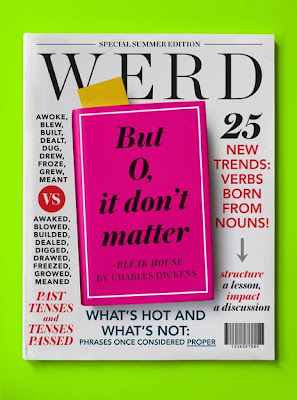“But, O, it don’t matter!” is from Bleak House by Charles Dickens. It was spoken by Richard Carstone, a character who was studying law and medicine and, as McWhorter says, generally used "perfectly blackboard-style English."
“I wish you was here” was quite acceptable when John Adams wrote to Abigail from France in 1778. My English teachers taught me to say "were" because that's the current fashion, or perhaps I should say it was the current fashion half a century ago.
Go read McWhorter's article. I think you'll enjoy it.
But don't tell me grammar don't matter!
(I cross-posted this on my Joyful Noiseletter blog.)

2 comments:
What an interesting article, Bonnie! It's funny how wrong the grammar Austen, Dickens, and Adams used sounds to my modern ears.
I do think that using proper grammar is important, as people certainly do judge you by your words. I don't think I'd conclude that someone was dumb, though, just because their grammar was improper. But some do, I reckon.
It's funny, I am not a huge grammar person, but there are a few that drive me crazy: when people get less/fewer mixed up; words that should end in "ly" but people leave it off; and different from (most people say different than). :-)
Post a Comment